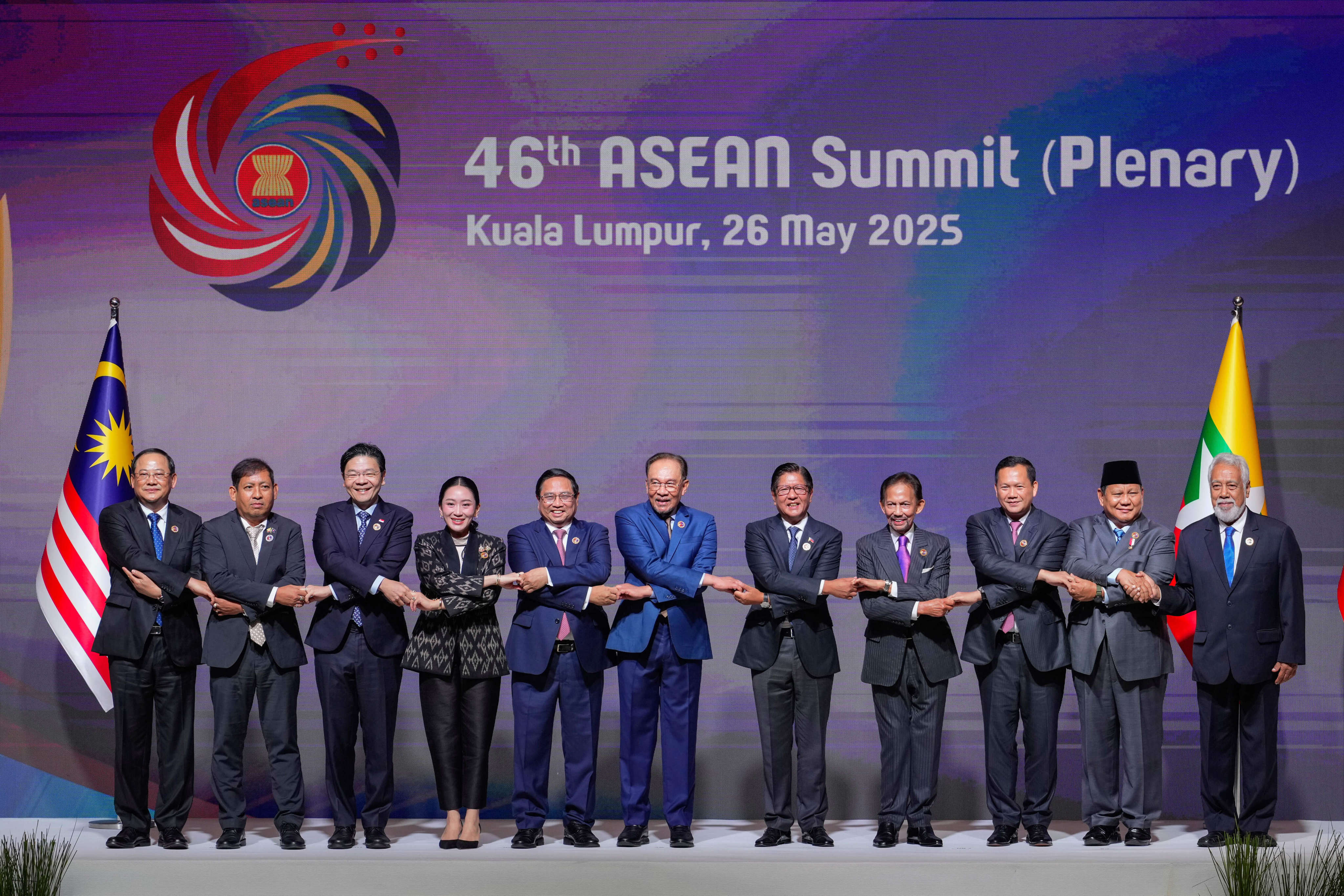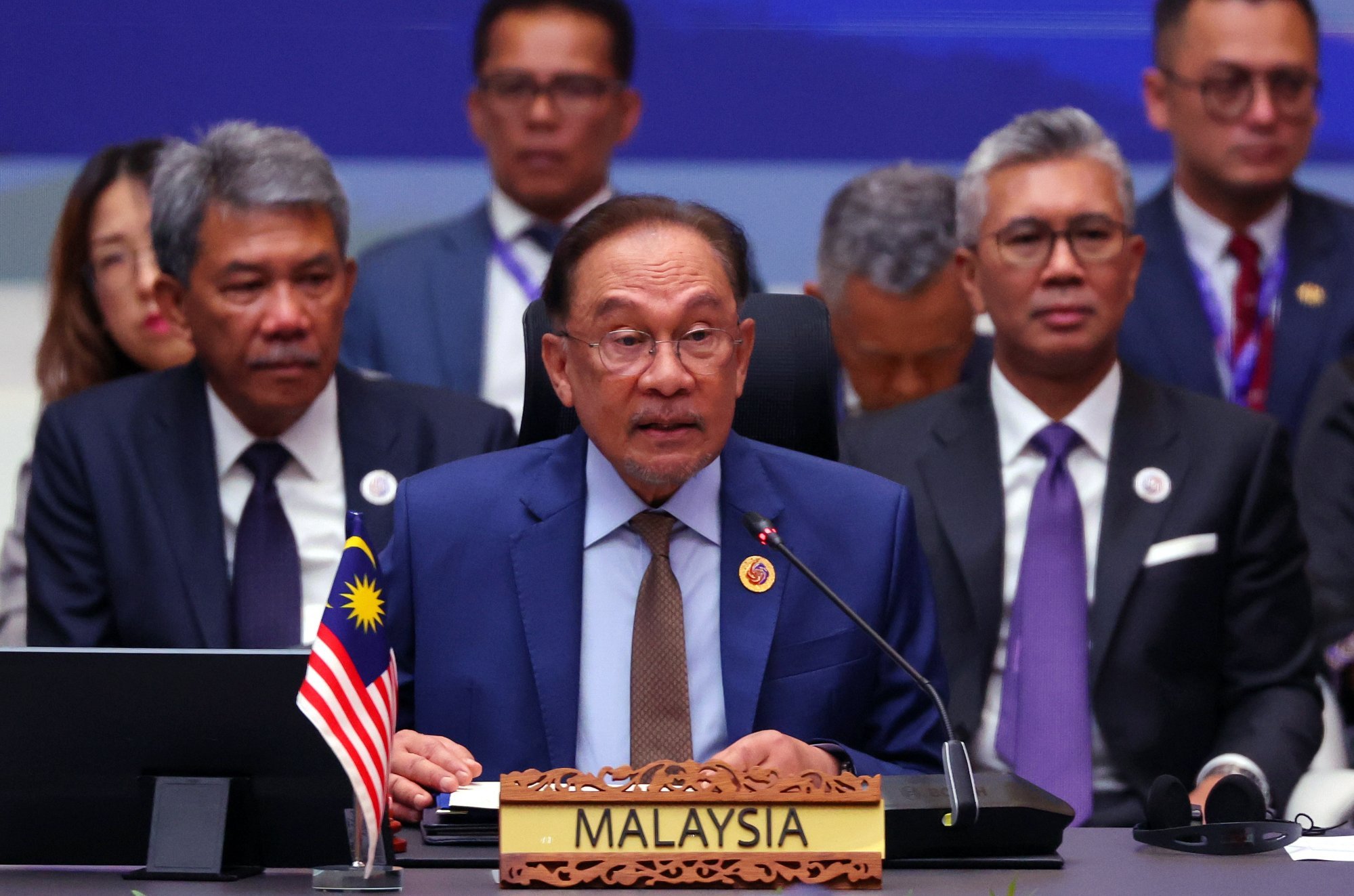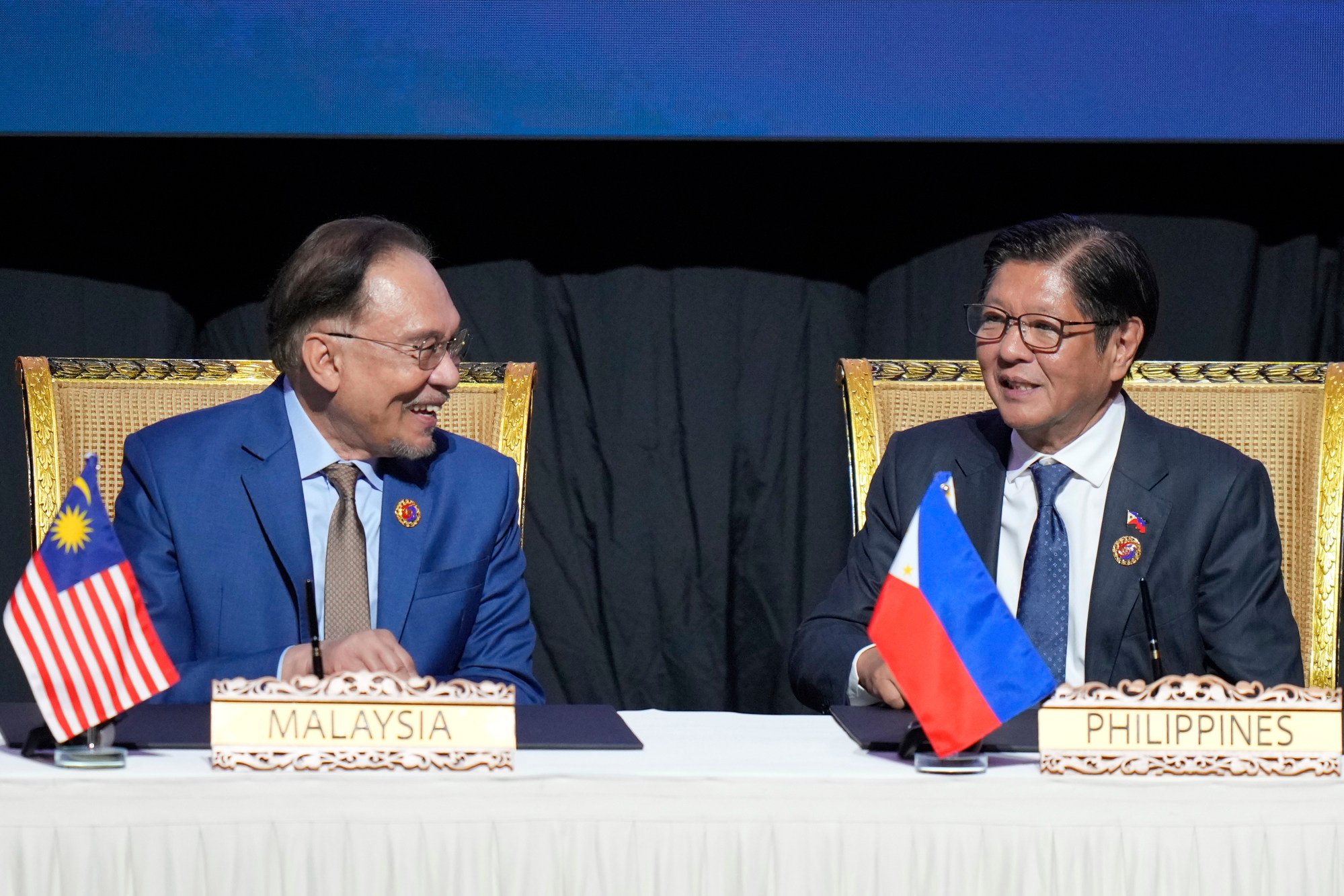Asean summit: Malaysia pushes for US to hold tariff talks with bloc
Bloc also launches Kuala Lumpur Declaration – a blueprint to develop the region through to 2045 – as Anwar warns of ‘unsettled’ international order

Malaysia is nudging the United States to negotiate tariffs with Asean as a single trading bloc, as Southeast Asia’s leaders express “deep concern” over Washington’s unilateral levies that threaten to disrupt growth in their trade-reliant economies.
Leaders of the Association of Southeast Asian Nations (Asean) converged on Kuala Lumpur on Monday for their two-day annual summit, focused on the potential economic crisis from US President Donald Trump’s tariffs but also to pressure Myanmar’s warring factions towards peace talks and resolve East Timor’s accession to the bloc.
It comes as growth across the region has taken a hit from Trump’s threatened tariffs, with levies of up to 49 per cent set to be imposed on member states unless they can make deals before a July deadline.
In his opening remarks at the summit, Malaysia’s Prime Minister Anwar Ibrahim – this year’s Asean chair – said he had written to Trump “to seek his understanding to organise a US-Asean meeting, which shows we observe seriously the spirit of centrality”, without elaborating on dates.

Malaysia’s Foreign Minister Mohamad Hasan said last week that Kuala Lumpur was still waiting for feedback from the US on when they could hold the meeting.
Asean’s leaders also launched the Kuala Lumpur Declaration – a blueprint to develop the region through to 2045 – in which they highlighted “deep concern” over Washington’s unilateral tariffs which pose “complex and multidimensional challenges” to their economies.
At the launch of the declaration, Anwar warned that the international order was “unsettled”, with ties between nations fraying under the pressure of geopolitical tension, economic fragmentation, climate change and technological disruption.
“The years ahead will be defined by revolutions in technology and science. Our ability to lead – in artificial intelligence, digital innovation and the green and blue economies – will determine not just our prosperity, but our cohesion,” he said in his speech.
Trade and economic upheaval caused by US tariffs has pushed the 10-member Asean bloc to pursue trade deals with non-US partners and increase intra-bloc trade and business cooperation.
Anwar on Monday said free trade was being “dismantled under the force of arbitrary action”, but added that he had faith in Asean’s economic “fortitude and staying power” despite the challenges.
To navigate the uncertainty, the bloc is swiftly seeking new trade deals.
Asean’s economic ministers completed talks with China on an upgraded free-trade deal last week, and have also agreed to work on reducing trade barriers between members of the bloc.
On Tuesday, the bloc will hold its first summit with China and the Gulf Cooperation Council (GCC) – a political and economic alliance of six Middle Eastern countries – in a sign of its readiness to embrace new markets.
Chinese Premier Li Qiang arrived in Malaysia on Monday for the Asean-GCC-China summit. He and Anwar are scheduled to deliver speeches at the event.
Adib Zalkapli, managing director of geopolitical and public policy advisory firm Viewfinder Global Affairs, predicted that the current trade turmoil would have a lasting effect on Asean.
“It won’t happen overnight or even at the end of Malaysian chairmanship, but the American ‘Liberation Day’ tariffs have certainly forced Asean to rethink its role and its approach in protecting the interests of the member states,” he said.
The American ‘Liberation Day’ tariffs have certainly forced Asean to rethink its roleAdib Zalkapli, geopolitical analyst
Asean will also discuss appointing a permanent special envoy to Myanmar to negotiate peace talks between the junta and rebel forces, instead of changing envoys according to the annual rotation of the bloc’s chairmanship.
Myanmar’s military leadership is currently banned from attending Asean summits.
Anwar on Monday said Asean had made significant progress that had “been able to move the needle forward” in efforts to resolve the Myanmar crisis.
“I wish to stress that throughout this process, quiet engagement has mattered,” he said. “The steps may be small and the bridge may be fragile but as they say, in matters of peace, even a fragile bridge is better than a widening gulf.”
A ceasefire was agreed in the wake of the March 28 earthquake that killed at least 3,800 people, but multiple breaches have since been reported, including a junta air strike on a school in the Sagaing region earlier this month that left dozens of children dead.
After meeting Anwar last month, Myanmar’s junta chief Min Aung Hlaing agreed to extend the ceasefire and to allow unimpeded aid into the country.
Millions have fled Myanmar into neighbouring Thailand to evade conflict and conscription.
“Asean must now pivot and adopt an enforceable bloc-wide fuel and arms embargo on the junta,” human rights group Fortify Rights said in a statement.
Meanwhile, Malaysia’s foreign minister has said Asean “cannot remain silent” on Israel’s war in Gaza, stressing that the “atrocities” committed there were a “direct result of the erosion of the sanctity of international law”.

This week’s summit also discussed the long-delayed South China Sea code of conduct, with Philippine President Ferdinand Marcos Jnr calling on his peers to “accelerate” its adoption by next year.
“This is to safeguard maritime rights, promote stability, and prevent miscalculations at sea,” Marcos told the summit.
Negotiations for a code with China have dragged on without resolution despite an increasing number of flashpoints emerging.
China lays claim to almost the entire waterway – through which at least US$3 trillion in global trade passes annually – overlapping with competing claims from Vietnam, Malaysia, Brunei and the Philippines.
Additional reporting by Raissa Robles